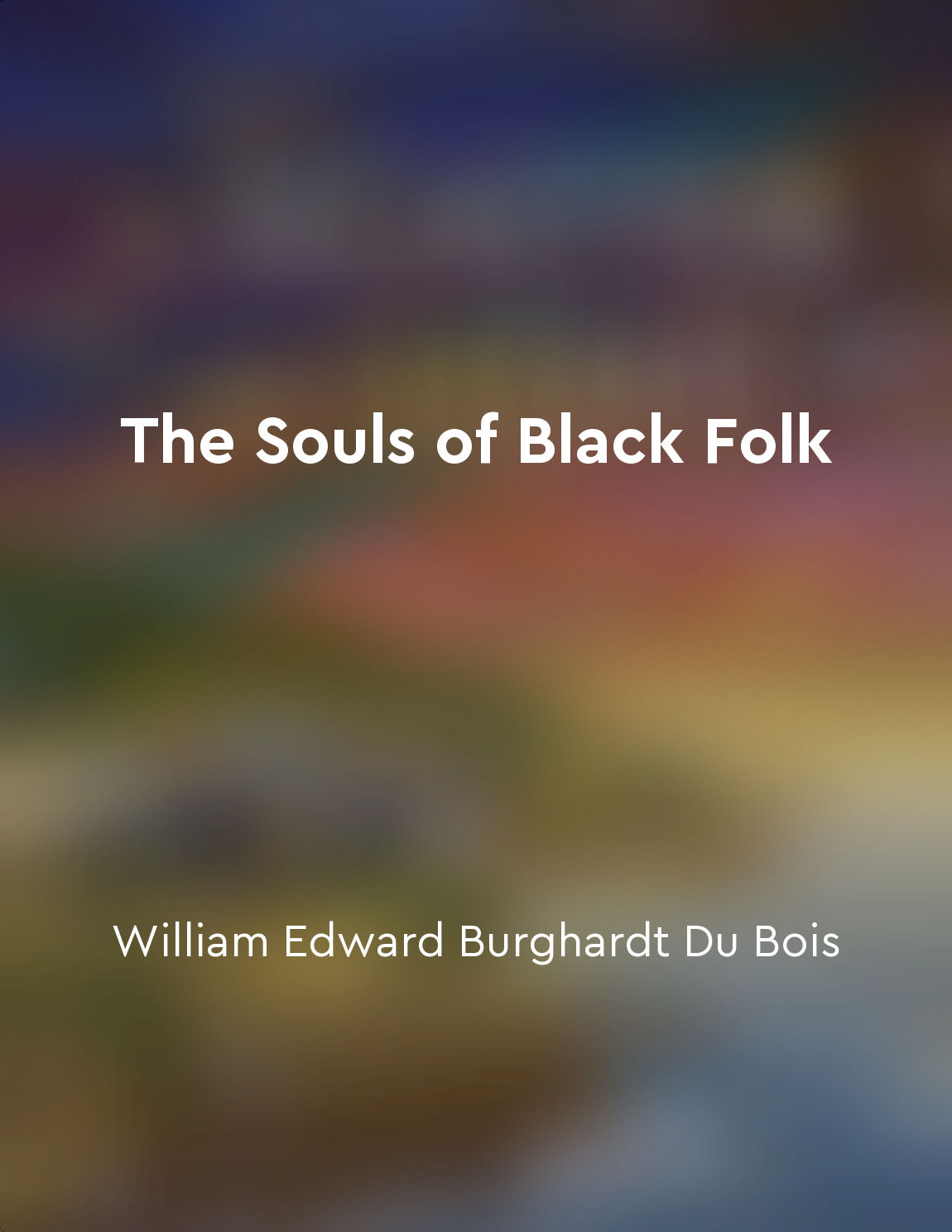Struggle for equality from "summary" of The Souls of Black Folk by William Edward Burghardt Du Bois
The problem of the twentieth century is the problem of the color-line. It is a problem that has haunted America since its birth, dividing the nation into two warring camps. On one side stand the privileged whites, who enjoy all the rights and opportunities that society has to offer. On the other side stand the oppressed blacks, who are denied these same rights and opportunities simply because of the color of their skin. This division has created a deep sense of injustice and inequality that has plagued our nation for generations. The struggle for equality is a fundamental part of the black experience in America. From the days of slavery to the present, African Americans have fought tirelessly to gain the same rights and privileges as their white counterparts. They have marched, protested, and even died in pursuit of this noble goal. Yet, despite all their efforts, true equality has remained frustratingly out of reach. In "The Souls of Black Folk," Du Bois explores the various ways in which African Americans have sought to achieve equality in a society that is fundamentally unjust. He examines the role of education, politics, and religion in the struggle for equality, showing how each has played a vital role in shaping the black experience in America. Education, in particular, is seen as a powerful tool for achieving equality. Du Bois argues that a quality education is essential for empowering African Americans to overcome the many obstacles that stand in their way. By gaining knowledge and skills, black individuals can improve their social and economic standing, thereby challenging the entrenched systems of oppression that have held them back for so long. Politics also plays a crucial role in the struggle for equality. Du Bois highlights the importance of African Americans engaging in the political process, both through voting and through activism. By participating in politics, black individuals can advocate for their rights and interests, pushing for laws and policies that promote equality and justice for all. Religion, too, is a potent force in the fight for equality. Du Bois shows how African American churches have long served as centers of resistance and resilience, providing spiritual and emotional support to a community in need. Through faith and fellowship, black individuals can find the strength and courage to continue the struggle for equality, even in the face of overwhelming adversity.- Du Bois paints a powerful and poignant picture of the struggle for equality that has defined the black experience in America. He shows how, despite the many challenges and setbacks they have faced, African Americans have never given up the fight for justice and opportunity. Theirs
Similar Posts
The legacy of slavery continues to impact the lives of black people today
The Dream thrives on generalization, on limiting the number of possible questions, on privileging immediate answers. The Dream ...

Themes of oppression and resilience
Throughout the text, there is a palpable sense of the deep-seated oppression that Black individuals have faced throughout histo...
The legacy of slavery continues to impact the lives of black people today
The Dream thrives on generalization, on limiting the number of possible questions, on privileging immediate answers. The Dream ...

